Susie O’Brien: Panic buying way over the top
The COVID-19 outbreak is alarming but Australia remains largely untouched with our health system well prepared. So responses such as panic buying are way over the top, writes Susie O’Brien.
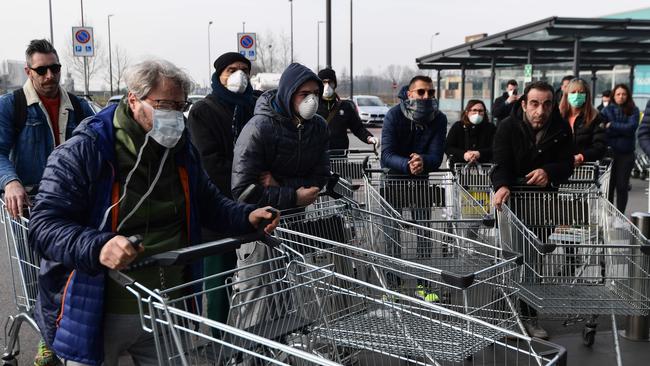
Susie O'Brien
Don't miss out on the headlines from Susie O'Brien. Followed categories will be added to My News.
It’s confronting to see Australian supermarket shelves stripped of essentials like bottled water, toilet paper, rice and pasta. But such panic buying is unnecessary and merely fuels fears about the spread of the coronavirus.
At times like this, fear becomes the contagion rather than the disease itself.
I understand why people are on alert. At this stage, the number of coronavirus cases is escalating and has reached nearly 87,000 globally. Nearly 3000 people have died — most of them from China.
Financial markets are reeling and the impact of the virus is being felt around the world.
In this country, we’ve had three more cases, all recent arrivals from Iran. That brings the number of affected people to 29. Australia has also recorded its first death from the virus: James Kwan, a 78-year-old retired travel agent who was on the Diamond Princess cruise ship.
But we don’t need to be alarmed. We’d all be much better off following basic health and hygiene warnings than buying a month’s worth of bottled water we won’t ever need.
There’s an irony here: people worrying about panic-buying are panic-buying themselves, further fuelling panic-buying by others.
Images of stripped shelves in the US are having a flow-on effect. We are following the lead of other places such as Hawaii, where citizens are used to bulk-buying essentials ahead of hurricanes and other emergencies.
We need to remember Australian supermarkets are among the most profitable and well-resourced in the world. We’re not going to run out of anything.
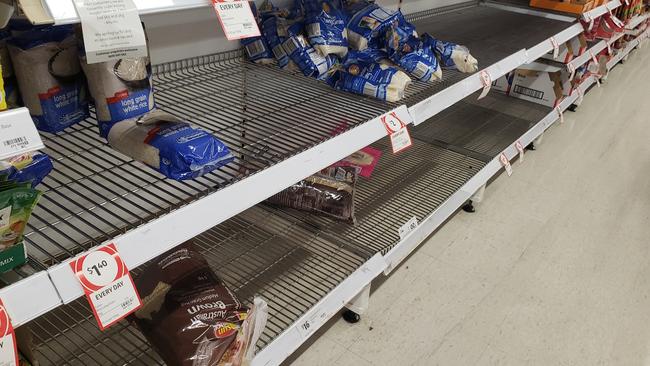
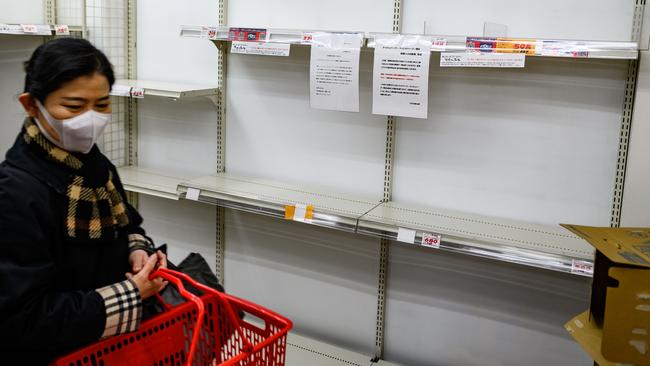
University of Queensland virologist Ian Mackay suggests people should buy a few extra items every time they are shopping in case there’s an interruption to the supply chain of food. But he explicitly warns against panic-buying or hoarding food.
Such behaviour also increases the risk of price gouging. We’ve already seen that for items such as face masks.
It’s important that we keep our fears in check and remember the facts about this virus. For a start, it is contained in this country.
All but one of the cases involve people who have travelled to affected regions.
The coronavirus also has a mortality rate of about 3.4 per cent, with people aged over 80 with pre-existing medical conditions the most at risk.
Associate Professor Mackay says the virus will mostly cause colds, which naturally peak during winter.
To put things into perspective, last year about 217,000 Australians got the flu and 300 died.
The World Health Organisation is calling the virus outbreak a global health emergency, but says it’s not yet reached pandemic stage.
As the WHO director-general sees it, using the word “pandemic” may cause fear and isn’t appropriate.
And yet that didn’t stop Prime Minister Scott Morrison last week from using that term, warning that although we haven’t reached pandemic stage, we are preparing for it. Morrison, keen to look strong after his bushfire faux pas, is overstating the risks and further fuelling unnecessary fears.
At this stage, the government has activated its emergency health response plan in order to make sure hospitals are ready for a mass outbreak. But there’s no need for anyone else to do things differently. There was no need for Morrison to talk about an escalation of Australia’s response which would see people working from home and large gatherings cancelled. Those things don’t seem likely.
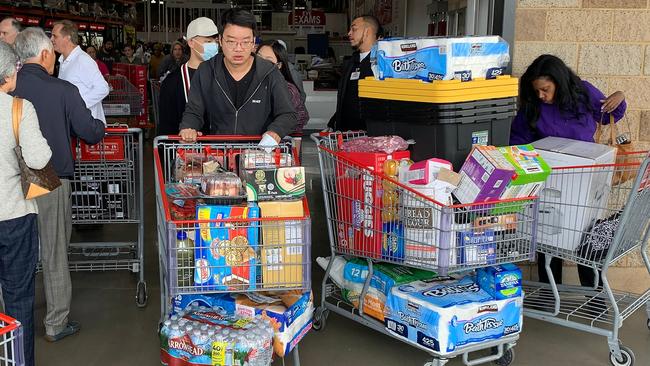
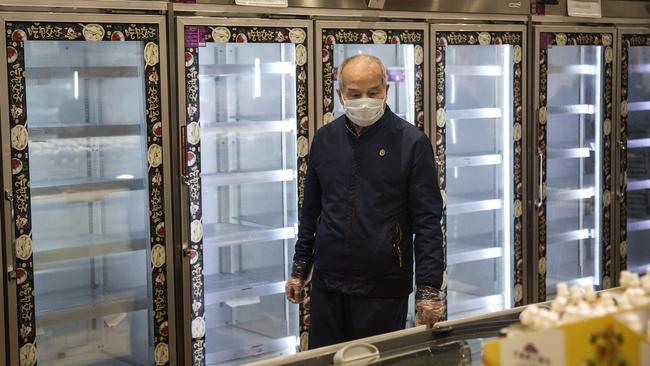
His tough talk about tighter border controls, medical stockpiles and possible lockdowns of aged care homes seems out of step.
Medical experts say preventive measures such as getting a flu shot are more appropriate at this time.
Doctors even say there’s no need to wear face masks, although people around the world are doing so. Infectious disease experts say the masks only offer minimal protection and have limited impact once they get wet from people’s breath. The longer they are worn, the less effective they become. A better defence is washing your hands with soap and water after eating and going to the toilet.
I’d prefer to take advice from Australia’s Deputy Chief Medical Officer, Paul Kelly, who says the best way to minimise the risk of catching the virus, or spreading it, is to wash your hands frequently and sneeze into your elbow. He also suggests staying away from sick people or staying home when you are sick.
The WHO advises thorough and regular hand washing. They also suggest people avoid touching their eyes, nose and mouth and maintain at least one metre of distance between themselves and anyone who is coughing or sneezing.
As the coronavirus outbreak shows no signs of abating, things are reaching a slightly bizarre level. Around the world, beer drinkers are boycotting the Mexican beer brand Corona, with 16 per cent of Americans reportedly confused about whether the virus is linked to the beer.
Just before writing this I popped into the supermarket and noticed that the shelves that were bare on Sunday night were already restocked and overflowing with essential goods.
So, at this stage, there’s no need to act like doomsday preppers. There’s no need to buy up all the pasta sauce you can find, or refuse to buy beer with the same name as the virus.
Be prepared if it makes you feel better, but there’s no need for panic.
Susie O’Brien is a Herald Sun columnist.

